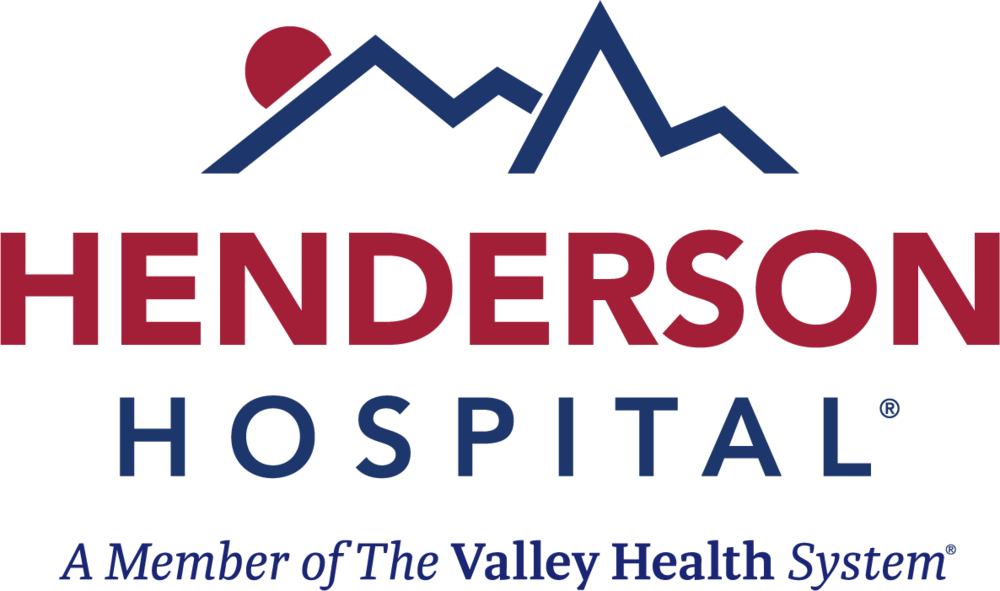Treating Stroke, Pain and Other Neurological Conditions
Henderson Hospital has been certified as a Primary Stroke Center by the Joint Commission. The Joint Commission’s Certificate of Distinction for Primary Stroke Center recognizes centers that make exceptional efforts to foster better outcomes for stroke patients.
Ischemic Stroke Volumes and Performance
2023 Henderson Hospital Stroke Volumes
|
Patient Type |
Number of Admissions |
|
Ischemic Stroke |
233 |
|
Intracerebral Hemorrhage |
35 |
|
Subarachnoid Hemorrhage |
9 |
|
Occlusion and Stenosis |
43 |
|
Transient Ischemic Attack |
93 |
|
Total |
413 |
2023 Henderson Hospital Stroke Performance Measures AHA/ASA Get with the Guidelines
*National Target Benchmark is above 90% Compliance
|
Stroke Performance Measures |
Compliance Rate |
|
Venous Thromboembolism Prophylaxis |
96.4 % |
|
Discharge of Antithrombotic Therapy |
99.4 % |
|
Anticoagulant Therapy at Discharge for A Fib/Flutter |
100.0 % |
|
Thrombolytic Therapy |
100.0 % |
|
Antithrombotic Therapy by Hospital Day 2 |
96.0 % |
|
Discharge on Statin Medication |
100.0 % |
|
Stroke Education |
95.5 % |
|
Assessed for Rehabilitation |
98.5 % |
2023 Henderson Hospital Stroke Outcomes
|
Overall Hemorrhagic Transformation: IV Thrombolytic and Mechanical Endovascular Therapy |
9.1% |
What is a stroke?
A stroke occurs when blood flow to the brain is blocked or stopped. Within a few minutes of a stroke, brain cells begin to die. According to the Centers for Disease Control and Prevention, stroke is the fifth leading cause of death and a major cause of disability in the United States. In fact, someone in the United States has a stroke every 40 seconds. Also, 90% of strokes are preventable; that is why prevention is at the core of our care.
The Two Types of Stroke
- Ischemic Stroke – This is the most common type. Something blocks blood flow in the brain. This can be plaque (cholesterol buildup), a blood clot or a combination.
- Hemorrhagic Stroke – This occurs when a blood vessel breaks and bleeds into the brain.
Symptoms of Stroke
- Numbness or weakness of the face, arm or leg—especially on one side of the body
- Difficulty with speaking or understanding speech
- Trouble seeing in one or both eyes
- Trouble walking, dizziness, loss of balance or coordination
- Severe headache with no known cause
BE FAST
If you or someone you are with has any of these symptoms, call 9-1-1 or get yourself or them to a hospital immediately. Staff in the emergency department will administer acute stroke medications to try to stop a stroke while it is happening. Ischemic stroke, the most common type of stroke, is treated with the 'clot-busting' drug known as Thrombolytic Therapy. These drugs must be given to patients within 3 - 4.5 hours after the onset of stroke symptoms, and preferably sooner.
Use the acronym BE FAST to quickly identify possible strokes:
B = BALANCE
Do you have a loss of coordination or trouble walking? Are you feeling dizzy?
E = EYES
Are you experiencing any vision changes like blurry vision or double vision? Are your eyes gazing to the side?
F = FACE
Smile. Does one side of the face droop? Can you see the same number of teeth on each side of the face? Does one side of your face feel numb?
A = ARMS
Hold up both arms for 10 seconds. Does one drift downward? Are you noticing any weakness or numbness?
S = SPEECH
Repeat a simple sentence. Is the speech slurred or strange? Can you understand the person?
T = TIME
If these signs are present, every second counts. Call 9-1-1 immediately.
Preventing Stroke
The best way to keep your brain healthy is to avoid a stroke in the first place. The best ways to prevent stroke are to do the following:
- Keep your blood pressure controlled through lifestyle changes and/or medications
- Take steps to manage your cholesterol
- Do not smoke or stop smoking
- Limit your alcohol consumption
- Maintain a healthy weight
- Exercise regularly
Find a Doctor
For a non-emergency referral to a neurologist at Henderson Hospital, contact our free physician referral service at 702-388-4888.
